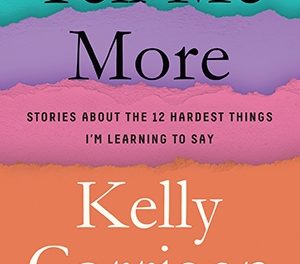The author “limbers up” with poetry, music, and art.
The Bay Area author’s third novel — a work of historical fiction — relates to her own family history.
During the 10 years Bay Area author Terry Gamble researched and wrote her third novel, The Eulogist, the narrative voice shifted multiple times. The book’s women’s rights issues in America during the early 1800s found contemporary echoes in the #MeToo era. And the country’s long history of slavery and race discrimination became central, organizing themes. Immigration, gentrification, colonization of Native Americans; workforce disruptions, union disputes, and a volatile marketplace as new technologies subverted traditional industries established additional relevance in modern times. And timelessly, unique opportunities had and have Americans making — and losing — vast fortunes.
Perhaps no one was more surprised by the historical fiction novel’s constant evolution and relevance than Gamble. Curious about her own family history, she wrote the immigrant story from multiple male characters’ perspectives. “I was well on my way when my editor suggested I write from Olivia’s voice,” said Gamble in a phone interview. “I’d written versions from James’, William’s, and Erasmus’ position. In the end, her guidance was correct, but it made plotting it tough. Olivia couldn’t be everywhere, so some stories are told through her imagining the scenes.”
Eulogist tells the story of the Givens family, forced by lack of opportunity to leave Northern Ireland after losing their ancestral estate. Arriving in America, they make their way to Cincinnati, at the time a bustling village in the free state of Ohio and mere steps from slaveholding Kentucky. Elder son James builds a successful candle-making company while his brother, Erasmus, drinks, carouses, and proclaims God’s forgiveness as a DIY preacher. As the narrative and the country tilt toward Civil War, their sister, the unconventional, intellectual Olivia, marries Silas Orpheus, a local doctor she assists during autopsies. Soon finding herself widowed, she defies stereotype, remains unmarried, and proves resilient in business acumen and clever support of emancipation.
While occasionally cross-dressing as a man, assisting “free” blacks, or working as a tutor, among other occupations, Olivia experiences thrilling, fleeting independence. Even so, as a woman living in a society and time that dictated women were more commodities than human beings with individual rights equal to that of men, Olivia shares a harsh reality with all marginalized people. Speaking as Olivia, Gamble writes: “… I could feel Opportunity dim to the point of extinction.”
Gamble’s family immigrated from Ireland. James Gamble and his brother-in-law, William Procter, eventually formed Procter & Gamble. She is a graduate of the University of Michigan. Her first two novels, The Water Dancers and Good Family, are based on childhood memories of summers spent in Northern Michigan.
“My first book, the learning curve had the excitement of discovery and how to write a novel. The second came quickly because it was a more familiar world. This one, I loved the research,” she said. “It’s like having three different children.”
For accuracy, Gamble traveled to Cincinnati, studied archives, and found original source material for the book’s factual details and to develop realistic characters. Observing people involved in historical re-enactments who clothe themselves in the era and its history added color to the story. “Plotting was hardest. I’m always interested in situation and conflict, but plotting requires you build tension and resolve it. It’s exploration and during editing to reach a final draft, elimination is always wrenching.”
To “limber up,” Gamble reads poetry, listens to jazz, activates her brain by visiting art galleries and museums, she said. Writing without noise or distraction, she sought solitude to discover Olivia’s voice. “I knew what she looked like and that she was smart. I found out she was more compassionate than even she thought. She said she didn’t like children but proved to be extremity attached to children. I also found out about her sexuality — something I never expected. She didn’t really want a sexual relationship with a man; she was attracted to other women but due to the time, never fully realized it. That’s sort of a spoiler for close readers of the book; it’s not overly apparent. Maybe she was not even sexual.”
Gamble said pouring through old documents resulted in appreciation for her ancestors. “They were savvy enough to prosper during financial collapse. They did their jobs well and gave to and cared about the community.”
At book signings, interaction with readers is rewarding. “The book is resonant in ways I hadn’t expected. There’s something to teach us. It’s common now — and was then — for people who are established or who have traction to lose sympathy for others. All of these transition periods create incredible conflict.”
Currently working on a novel about how people communicate in a dystopian world that creates digital “walls” or “barriers,” Gamble laughed about the experience. “I can’t write it fast enough. I get ideas I think are crazy, and then it happens — walls separating and ostracizing communities — in the real world. It’s history speeding past us. If I’ll be able to pull it off is anyone’s guess.”
The Eulogist by Terry Gamble (William Morrow, 320 pp., $26.99)
















